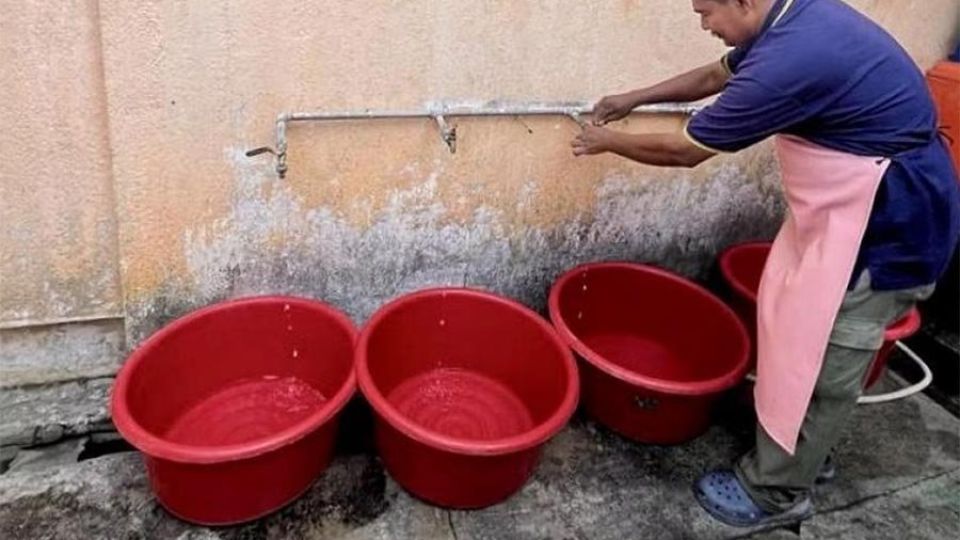January 18, 2024
SINGAPORE – Malaysians will pay more for drinking water from Feb 1 as the government moves to raise revenue for new water-treatment plants and to fix leaky pipes.
The move will affect 11 states in Peninsular Malaysia and the three federal territories.
The National Water Services Commission (Span) – a federal agency – said in a statement on Jan 17 that domestic households will see an average increase of only RM3 (86 Singapore cents) a month in their water bills. It also encouraged water-supply operators in the 11 states to provide rebates for lower-income families.
Water issues, including the management of reservoirs, rivers and water-treatment plants, are generally managed separately by each of the 13 state governments. The states also have different water tariffs.
Sabah and Sarawak states are excluded from the Feb 1 tariff hike.
“A big chunk of the problem is ageing equipment, ageing infrastructure, lack of maintenance and the financial viability of operators,” Span chairman Charles Santiago told The Straits Times on Jan 12.
“What we need to do is pump more money into infrastructure development, and take the issue of the water industry seriously.”
He added that the federal government should commit to spending RM10 billion every year to upgrade the water infrastructure for three or four years. “After that, you will have a certain level of assurance and security,” he said.
Potable water is sold at different prices in the various Malaysian states, with the average tariff charged to households at RM1.43 per cubic m on Dec 31, 2022.
The new water tariff is estimated to be higher by 22 Malaysian sen per cubic m, or at an average of RM1.65 per cubic m.
“The adjustment of domestic water tariffs starting Feb 1 in the peninsula and Labuan involves an average increase of 22 sen per cubic m,” said Span, adding that the rates will be reviewed every three years.
Some states have not reviewed their water tariffs for 40 years, as public complaints often spike when higher water rates are announced.
But Span said it could no longer delay the tariff hike in order “to ensure long-term sustainability of the water-supply industry”, while underlining that even the tariff increase will not cover the actual cost – at RM1.75 per cubic m in 2022 – of providing water.
In response to the announcement, the Penang government said on Jan 17 that consumers in the northern state will have to pay double from Feb 1, with a new tariff of 50 sen for every cubic m for the first 20 cubic m, compared with the current 22 sen.
Negeri Sembilan said state consumers who use up to 20 cubic m of water per month would from Feb 1 be charged 71 sen a cubic m, from 55 sen now.
Span and another federal agency, the Water Asset Management Company, are tasked with overseeing the state water operators in Peninsular Malaysia and the federal territories, and the maintenance and construction of water infrastructure.
The intervention by the federal agencies was to partly alleviate the perennial shortage of funds in state governments to maintain or build new water-treatment plants, enlarge reservoirs or repair thousands of kilometres of ageing underground pipes.
Malaysia’s Natural Resources and Environmental Sustainability Minister Nik Nazmi Nik Ahmad said in November that almost all water-supply companies were operating at a loss.
According to Span, some pipelines date back to the British colonial era. Peninsular Malaysia has about 39,000km of asbestos cement water pipes, some of which urgently need replacing.
More than a third – 37 per cent – of water in the country is what is billed as non-revenue water: potable water pumped out from treatment plants that leaked into the ground or was stolen.
And some 90 out of 340 water-treatment plants are operating beyond their capacity.
Further, about 85 per cent of Malaysia’s water supply comes from rivers, with Mr Santiago saying the country needs to move towards reclaimed water.
Water consumption is high in Malaysia, at an average of 230 litres per capita a day, compared with 160 litres in Singapore, he noted.
“That’s because it’s cheap. The motivation for wastage is very high,” he said.
Note: The article has been updated for clarity.


